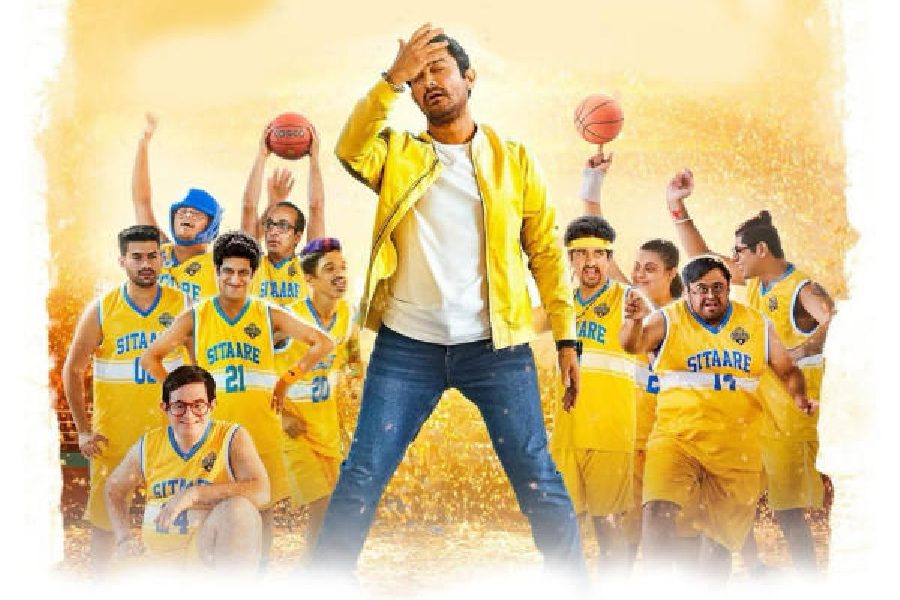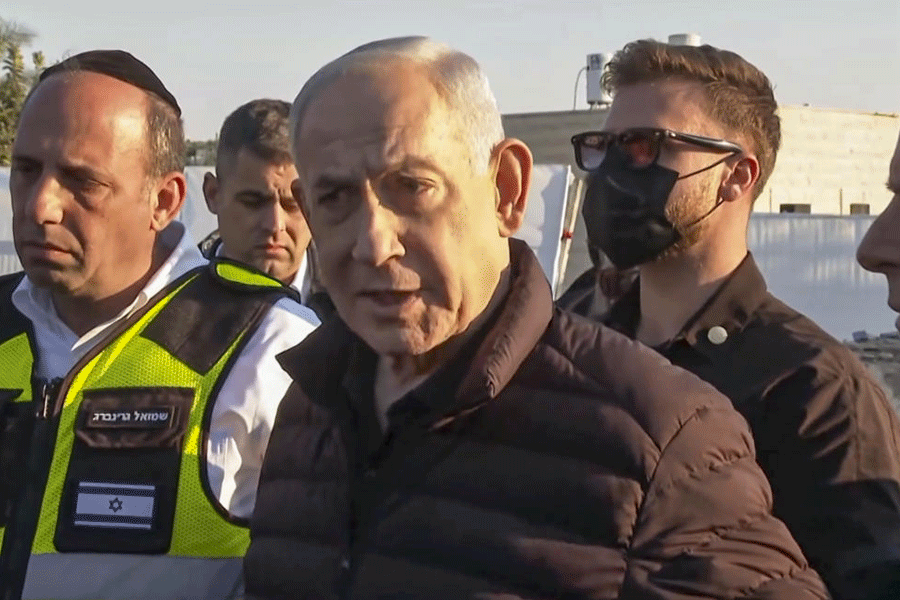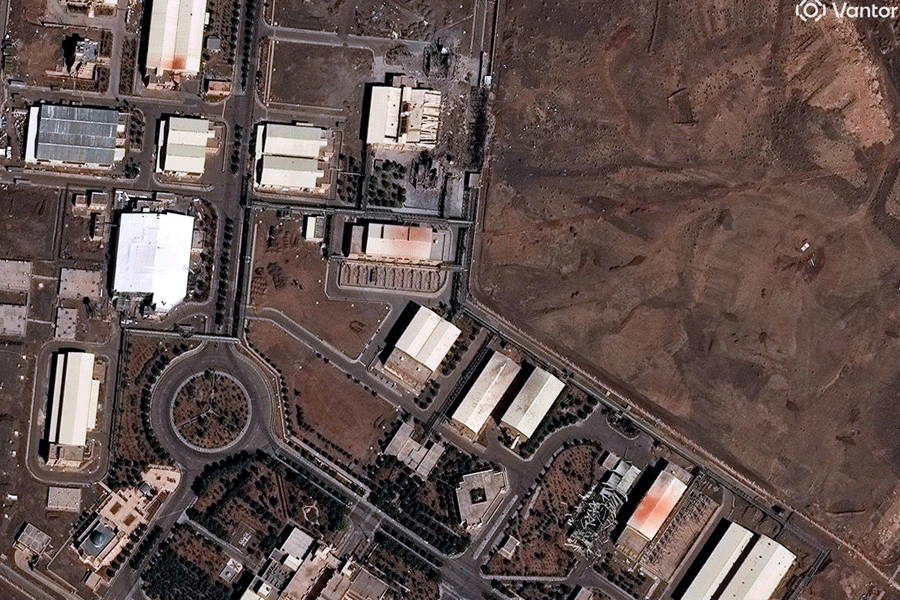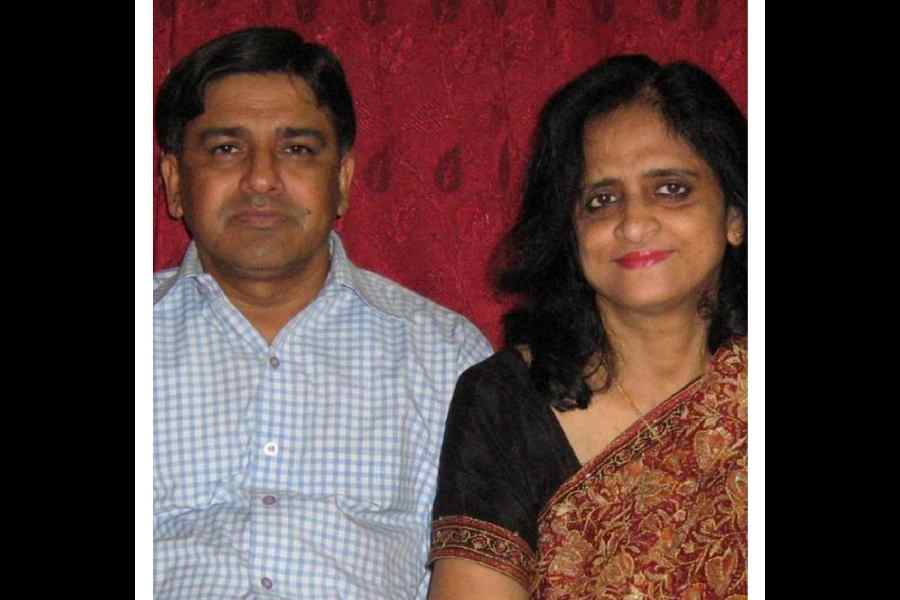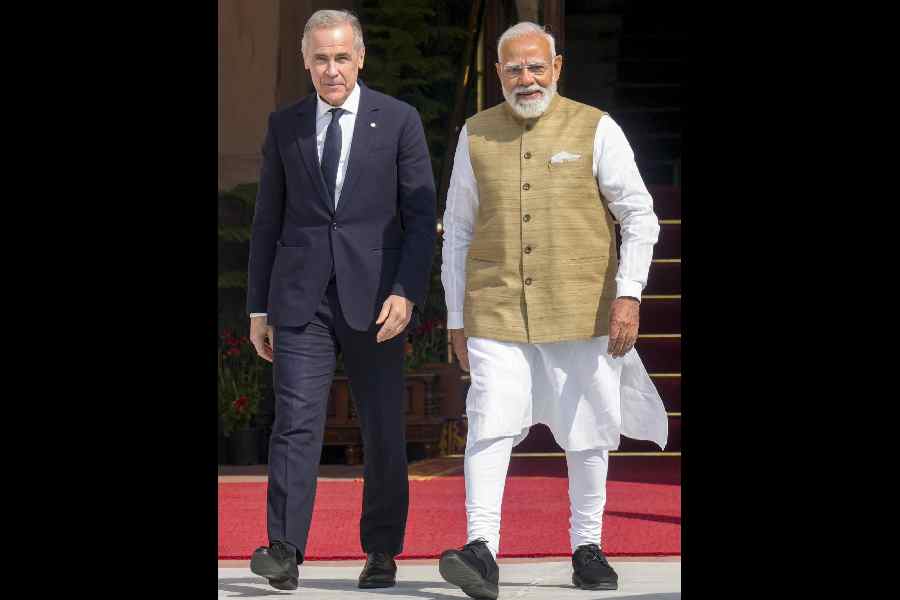Sitaare Zameen Par — a heartwarming story that emphasises on inclusivity and has specially-abled amateurs sharing screen space with Aamir Khan (who has also produced the film) — has created the right amount of buzz. Ahead of its release in theatres on June 20, The Telegraph chatted with director R.S. Prasanna on the heart, soul and thought of the film.
Has the feedback to the trailer of Sitaare Zameen Par made you feel that the audience has been waiting for a film like this for a long time?
Yes, very much. It has been a feeling of overwhelming positivity. The films that I have loved watching are those that give love and have consistently warmed my heart. These are films like Life Is Beautiful, Cinema Paradiso, Taare Zameen Par.... We were eagerly waiting for the response to the trailer of Sitaare Zameen Par and that night, my phone was constantly buzzing.
Everyone is saying that they can feel a positive vibe in this film. They feel that it is a quintessential Aamir Khan film. Whoever has spoken to me has said that they will take their families to the theatre to watch it. I think a lot of people have also loved the fact that Sitaare Zameen Par will only release in theatres.
Releasing it only in theatres with no plan of an OTT release is innovative and maybe just the shot in the arm the theatrical business needs at the moment. But it is also a big risk. Doesn’t that worry you?
No, absolutely not. I was super excited when Aamir sir said it is going to release only in theatres. We are fans of the theatrical experience. I watched Taare Zameen Par (directed by Aamir) in the theatre and I remember the merging of individual and group emotions that happened... all strangers in a room united by the tears brought on by what we were seeing. We were able to relate to it in some way or the other. It is very important to watch movies in the theatre as a family, as a group. Sitaare Zameen Par comes with a lot of humour, and humour multiplies when you watch it with a group in a theatre. It is also a sports film, a high-energy film. We are excited to take it to the theatres.
What made you want to make a film on this subject?
One always hopes to make a film that goes beyond being just a film. As a filmmaker, of course, one has to be a fan of cinema first and know that it has to work as a story, there has to be entertainment and it has to be fresh. But beyond that, if you are lucky, you come across a story that enables you to reach the hearts of people.
The core thought of Sitaare Zameen Par is that sabka apna apna normal hota hain. There is a certain thought of inclusion and the message that all of us are united and that while we have our own sense of normal, we can all come together in love. That is a beautiful and universal message. I didn’t want to miss the opportunity to tell a story like this which has the ingredients of a fun movie but also speaks about people with Down Syndrome and autism.
A lot of people discriminate against people with special needs. But in India today, we have agencies, counselors and special-education experts who are doing a fabulous job. This film is a tribute to all those people who are changing mindsets, one person at a time, and trying to build an inclusive environment.
I met a principal who spoke to me about her school being inclusive. She said something that resonated with me, which was our thought while making this movie as well. She said that by making the school inclusive, they had not done the special-needs community a favour. In fact, the community had done them a favour because by bringing neurodivergent kids into the classroom, the so-called neurotypical kids had become better human beings. They had grown in empathy and responsibility. They had become more compassionate and the bonding and happiness in the class had increased. So a move towards inclusivity actually makes the whole environment better for all of us.
That is the kind of environment we had on our set too. The ‘sitaare’ (the neurodivergent actors) enriched our film. You must have seen the recent video where they erupted with joy when Sachin (Tendulkar) walked into the room. That is the kind of joy we experienced with them on set every day. An inclusive society is a beautiful society for all of us, which is what the film emphasises on.
What made you feel that only Aamir Khan could do justice to this film, both as actor and producer?
The phenomenal variety of emotions that this character required is something I felt only Aamir sir could do justice to as an actor. He is the best we have — we have witnessed his ability to do diverse characters and also how he embodies the physicality and psychology of a character.
As a producer, he has always been all heart. He knows how every ingredient in the making of a movie is very important. As a human being, he has always been very sensitive. His TV show Satyamev Jayate and, of course, Taare Zameen Par are huge examples. His Paani Foundation does such great work. He is someone with a social conscience who constantly uses cinema to change society for the better.
Also, Aamir Khan’s superstardom promises quality cinema, it promises something different. His fans always look forward to something heartwarming and fresh from him. Even with films like Delhi Belly and Laapataa Ladies, he has broken stereotypes. So on all three levels, I knew that Aamir sir was the perfect person to pitch this film to and I feel lucky that things have turned out the way they have.
When was it decided that Sitaare Zameen Par would be a spiritual sequel to Taare Zameen Par? Did that put pressure on you considering what a cult film the latter is?
It happened organically. I would constantly talk to Aamir sir about his previous films. I am still a student of cinema who keeps asking questions. I would ask him about the experience of making certain films and he is such a sport that he would answer all my questions. Taare Zameen Par figured often in those conversations.
It was Aamir sir who came up with the thought that both Taare Zameen Par and Sitaare Zameen Par talk about inclusion and that they seem to have come from the same core, the same heart. He said that this film could be a spiritual successor.
I was super excited, but I also realised the pressure it came with! (Laughs) But as we went along, the fact that Aamir sir was with me in every frame and in every shot reduced that pressure. I must add that none of it was force-fitted. It came together organically because we discovered that the heart was in the right place for both films.
This is, of course, a story with universal emotions. But in adapting it from the Spanish original Campeones, what did you bring to the film to make it more rooted in the desi ethos?
My debut Hindi film, Shubh Mangal Saavdhan, was an adaptation of my own Tamil film Kalyana Samayal Saadham. I took three years to make that film because an adaptation is not at all easy. While it has to maintain the spirit of the original, one also has to adapt it with a lot of localisation, a lot of flavour and resonance to the audience we are speaking to.
Sitaare Zameen Par is a story that we really wanted to tell. Which other story would have given us the opportunity to work with 80-100 specially-abled people in one film? And when you adapt, you automatically spend a lot of time in making sure that you localise it in the correct context, but there also has to be a universality to the film. I come from a theatre background and in theatre, you take a script that was written years ago and then you adapt it. Finally, what matters is the storytelling.
Also, it is very important to know why you want to adapt a story. This is a story I want my parents, my family and my friends to see, and I want them to access it in the Indian idiom, so to speak.
While working with so many specially-abled actors must have been a fulfilling experience, what were the challenges?
If you approach everything with a learner’s mindset, then you don’t look at it as a challenge. We auditioned 2,500-plus people and selected 10 who fitted our roles. We set up a mini film-school environment where they would come in the morning, learn their lines and do workshops. As a result, within three-four months, they could tell you the scenes top to bottom and act it out like a play. They also had basketball training. We gave them all the tools required for an amateur actor. In this process, we were guided by their parents and by a special consultant that we brought on board for their medical needs and for any special needs that they may have had.
They were a pleasure to work with. They were punctual, disciplined, they had their lines down pat in no time. Their stamina was 100 times more than what I had as a director. Giving up is not a word that they have in their lexicon. As long as you gave them love, as long as you told them: ‘You know what, I think you can do better, buddy’, they went out of their way. And that is what a director really wants — a committed actor who doesn’t give up till you are happy. They brought the same qualities to the table as seasoned professionals like Aamir Khan and Genelia Deshmukh did.

